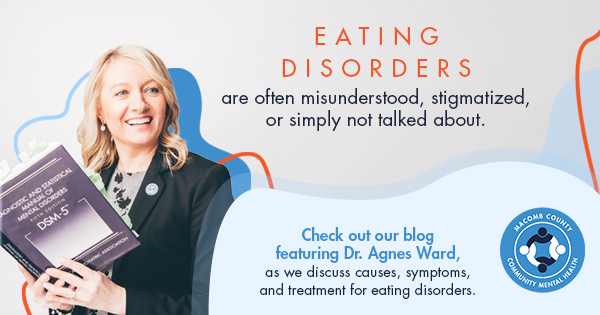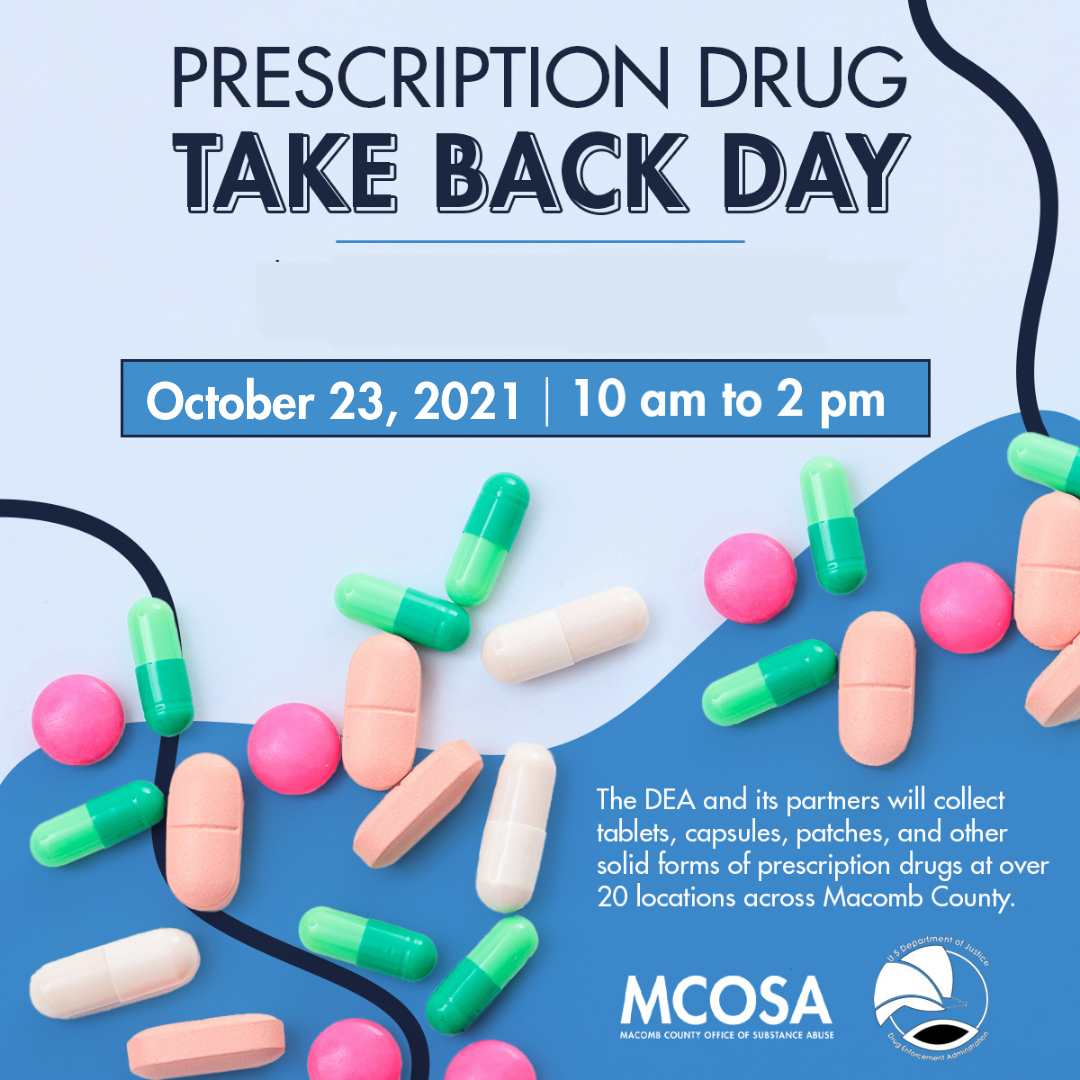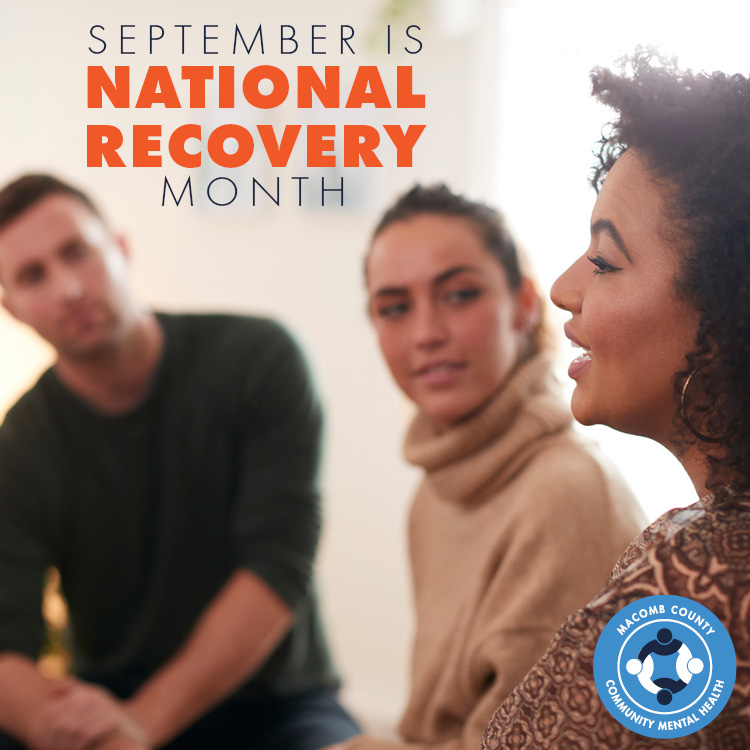
Let’s Talk About Eating Disorders:
Eating disorders are complex medical and psychiatric illnesses that can have serious consequences for health, productivity and relationships. There are many causes of eating disorders, but they often occur due to low self-esteem, a history of abuse, pressures to be thin, or eating as a way to cope. “Eating disorders are mental illnesses that are both serious and treatable,” said Dr. Agnes Ward, MCCMH’s Chief Clinical Officer. “The most common eating disorders individuals may have heard of are Anorexia Nervosa, Bulimia Nervosa, and Binge Eating Disorder.”
Eating disorders can affect people of all genders, ages, races, religions, ethnicity, sexual orientations, weights, and body shapes.
Some common signs and symptoms of eating disorders are behaviors and attitudes that indicate weight loss, dieting, and control over food becoming one’s primary concern. Also, preoccupation with food, refusing to eat in front of others, food rituals, skipping meals, frequent dieting, mood swings, dizziness, fainting, feeling cold, yellow skin, dressing in layers, and dental problems.
Ward says, she would like people to know that eating disorders are very serious and not only affect mental health but physical health and can be life-threatening. Eating disorders can affect many organs of the body. “Pulse and blood pressure can become low. Electrolytes can be depleted from the body as a result of vomiting. Stomach pain and bloating can occur, blocked intestines, rupturing of the esophagus, sore throat, horse voice, bowel problems, infections, and irregular hormone levels are some of the symptoms an individual can experience.”
It is a misconception that eating disorders are something that only women battle with. “They do not just affect women. The relationship with food can be very complicated and people can’t ‘just get over it.’ There is help available and recovery is possible,” Ward said.
There is a variety of help options available for individuals with eating disorders. Levels of care can include out-patient treatment, partial hospitalization, in-patient hospitalization, and residential treatment settings.
At MCCMH, we start with a screening to determine the most appropriate level of care. From there, we make referrals to the various providers we work with that most closely match the individual’s treatment needs. Individuals can also access the National Eating Disorders Association (nationaleatingdsorders.org) to find a provider.
If you believe you or someone you love has an eating disorder, contact our Access Center for a screening at 586-948-0222.




